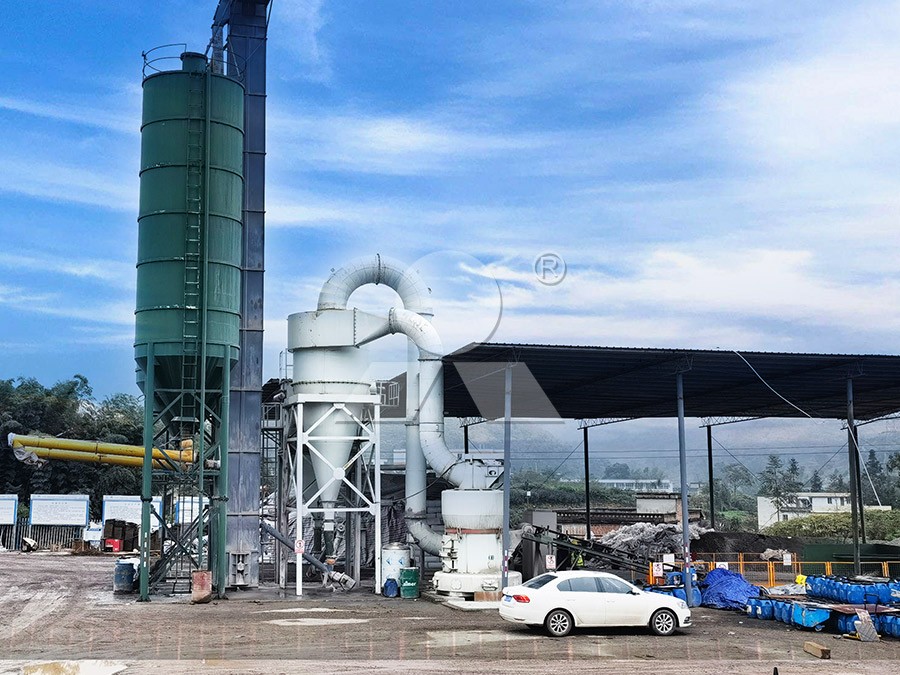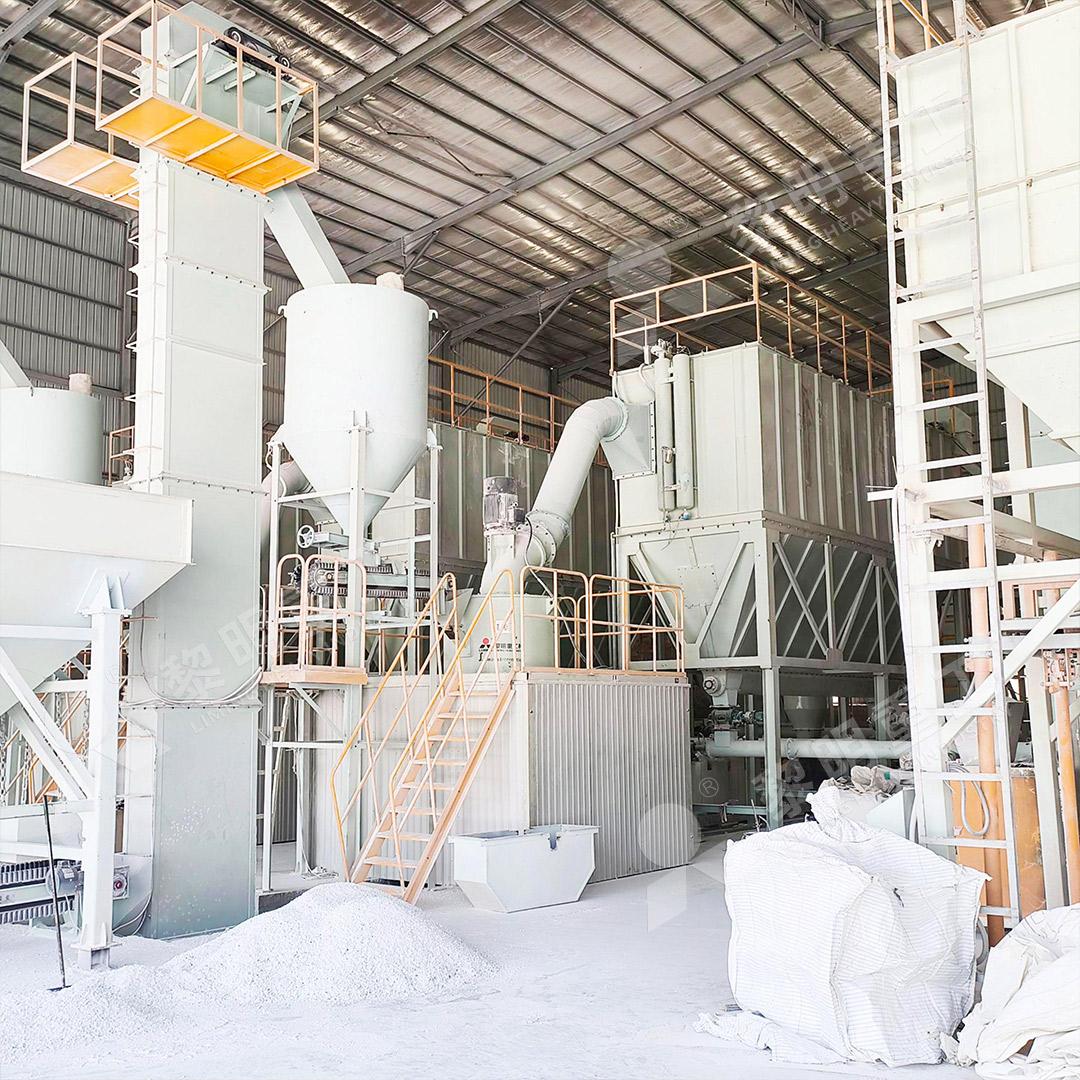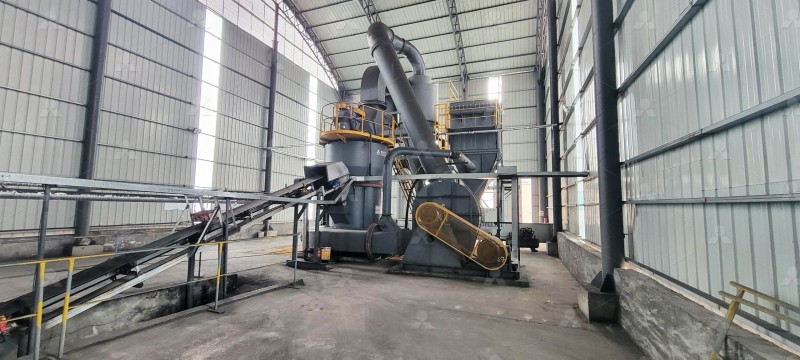Raymond Mill for Feldspar: Efficient Grinding Solutions for Mineral Processing
We provide a wide range of mills — including Raymond mill, trapezoidal mill, vertical mill, ultrafine mill, and ball mill, obtained ISO9001 international quality certification, EU CE certification, and Customs Union CU-TR certification. Suitable for processing minerals such as limestone, phosphate, quicklime, kaolin, talc, barite, bentonite, calcium carbonate, dolomite, coal, gypsum, clay, carbon black, slag, cement raw materials, cement clinker, and more.
The discharge range of these mills can be adjusted to meet specific processing needs, typically from 80-400 mesh, 600-3250 mesh, and can achieve the finest particle size of up to 6000 mesh(D50).
If you are looking for a reliable grinding solution to turn stone or minerals into fine powder, please feel free to contact our online customer service.
Raymond Mill for Feldspar: Efficient Grinding Solutions for Mineral Processing
Feldspar, one of the most abundant minerals in the Earth’s crust, requires precise grinding solutions to achieve the desired particle size distribution for various industrial applications. From ceramics and glass manufacturing to fillers in the paint and plastics industries, properly processed feldspar demands equipment that can deliver consistent results with operational efficiency.

Traditional grinding methods often fall short when processing feldspar due to its variable hardness and the need for precise particle control. The mineral’s composition—typically containing aluminum silicates combined with potassium, sodium, or calcium—requires grinding equipment that can handle moderate hardness while maintaining product quality and minimizing iron contamination.
The Evolution of Feldspar Grinding Technology
While conventional Raymond mills have served the industry for decades, technological advancements have led to more sophisticated solutions. The limitations of early grinding systems—including inconsistent particle size, high energy consumption, and maintenance challenges—have driven innovation in mill design and operation.
Modern grinding solutions address these challenges through improved grinding curves, advanced powder separation technologies, and more efficient drying capabilities. These developments are particularly crucial for feldspar processing, where product purity and particle size distribution directly impact performance in downstream applications.
Advanced Grinding Solutions for Superior Results
For operations requiring ultra-fine feldspar powders, the MW Ultrafine Grinding Mill represents a significant technological advancement. With an input size capacity of 0-20 mm and throughput ranging from 0.5-25 tph, this equipment is specifically engineered for customers who need to produce ultra-fine powder with exceptional consistency.

The MW series incorporates several innovative features that make it particularly suitable for feldspar processing. Its newly designed grinding curves of grinding roller and grinding ring enhance grinding efficiency significantly. Compared to conventional systems, the MW Ultrafine Grinding Mill demonstrates 40% higher production capacity with the same fineness and power requirements, while reducing system energy consumption to just 30% of jet grinding mills.
Another notable advantage is the adjustable fineness range between 325-2500 meshes, achieved through German cage-type powder selector technology. This precision in particle size control ensures feldspar products meet exact specifications for various industrial applications. The mill’s design eliminates rolling bearings and screws in the grinding chamber, addressing common failure points and enhancing operational reliability.
Operational Efficiency and Environmental Considerations
Beyond technical performance, modern feldspar grinding equipment must address environmental concerns and operational costs. The integration of efficient pulse dust collectors and mufflers in advanced mill systems minimizes dust and noise pollution, ensuring compliance with environmental standards while maintaining worker safety.
The MW Ultrafine Grinding Mill’s external lubrication system allows for maintenance without shutdowns, supporting continuous 24-hour operation that maximizes productivity. This feature, combined with digitalized processing that ensures high machining precision, delivers consistent performance that mineral processing operations require.

Selecting the Right Equipment for Your Operation
When evaluating grinding solutions for feldspar processing, several factors should guide equipment selection. Production capacity requirements, target particle size distribution, energy efficiency goals, and maintenance considerations all play crucial roles in determining the optimal solution.
For operations focused on ultra-fine feldspar powders, the MW Ultrafine Grinding Mill offers distinct advantages in precision and efficiency. Its ability to achieve d97≤5μm in a single pass, combined with significantly reduced energy consumption, makes it an economically viable solution for modern mineral processing facilities.
Frequently Asked Questions
What makes the MW Ultrafine Grinding Mill suitable for feldspar processing?
The MW Ultrafine Grinding Mill is specifically designed for minerals like feldspar, offering precise particle size control between 325-2500 meshes, reduced iron contamination, and higher efficiency compared to traditional grinding methods.
How does the energy consumption of modern grinding mills compare to conventional systems?
Advanced mills like the MW series consume approximately 30% of the energy required by jet grinding mills while delivering 40% higher production capacity with the same fineness and power input.
What particle size range can be achieved with the MW Ultrafine Grinding Mill?
The equipment can produce feldspar powders ranging from 325 to 2500 meshes, with the capability to achieve d97≤5μm in a single processing stage.
How does the maintenance requirements of modern grinding mills impact operational continuity?
With features like external lubrication systems and the elimination of internal rolling bearings and screws, mills like the MW series allow for maintenance without shutdowns, supporting 24-hour continuous operation.
What environmental considerations are addressed in contemporary grinding equipment?
Modern mills incorporate efficient pulse dust collectors, mufflers, and sealed systems that minimize dust emissions and noise pollution, ensuring compliance with environmental standards.
